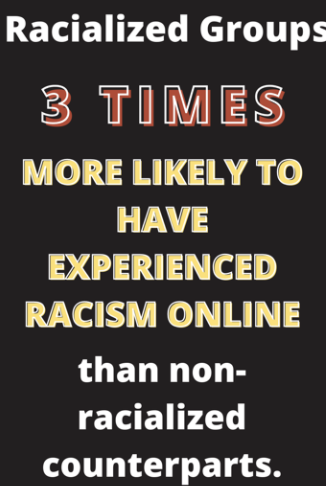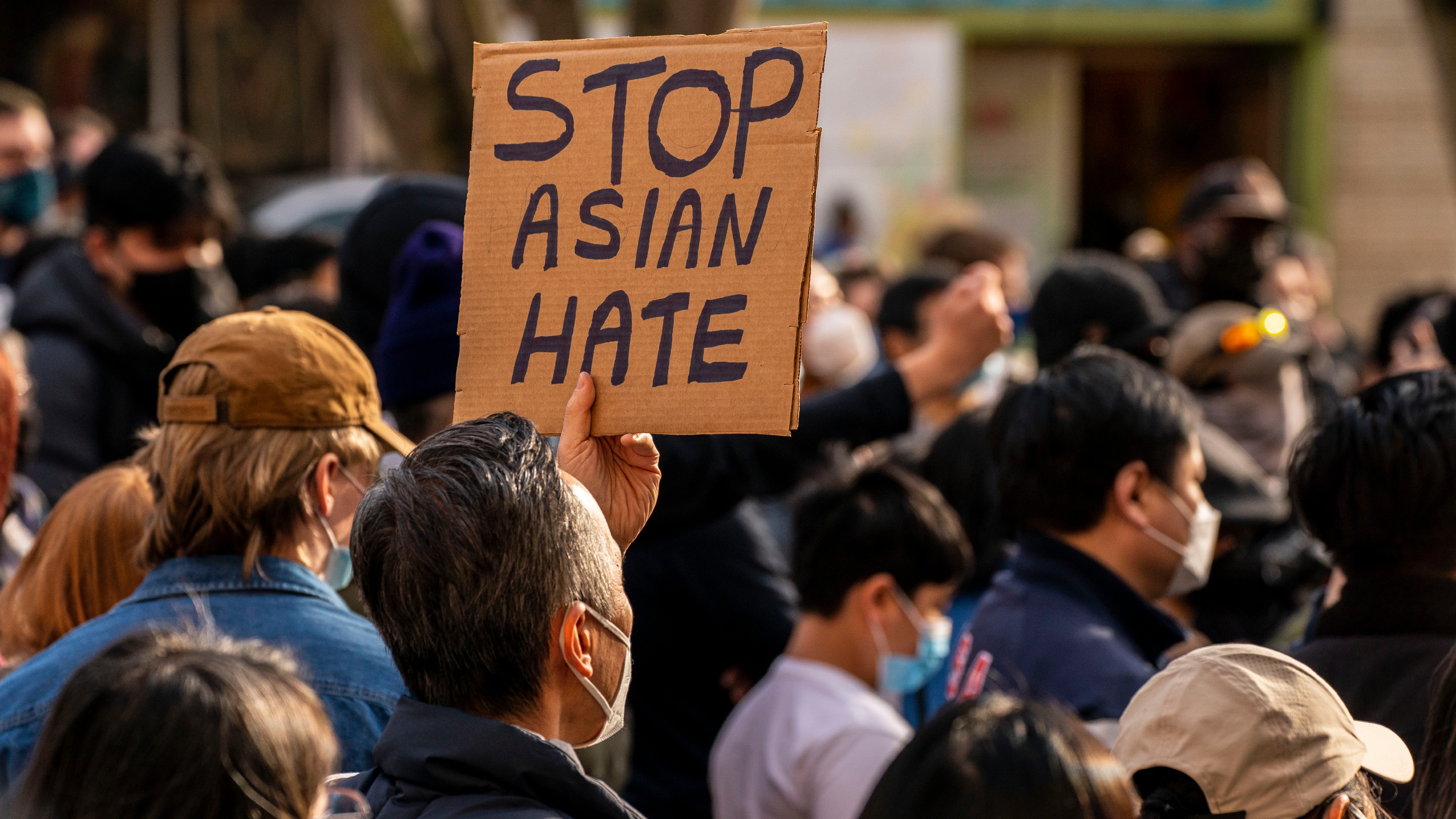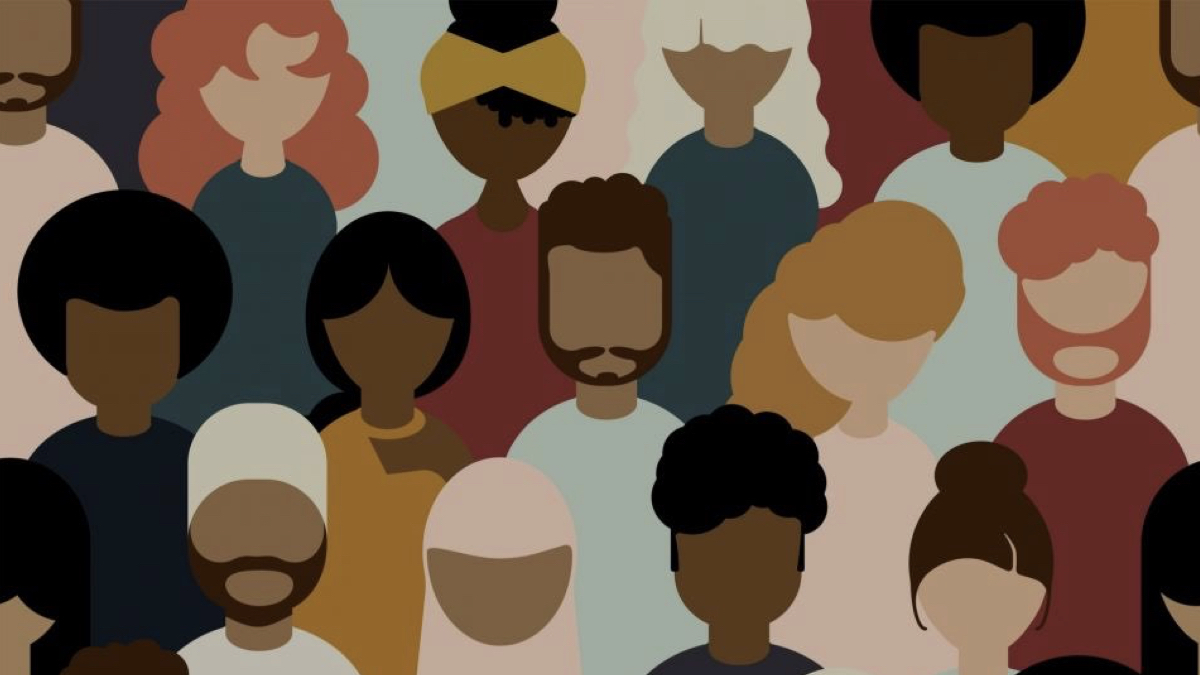The issue of online hate.
By: Maryam Faisal
Two years ago, when Brenton Tarrant charged into a mosque in Christchurch and live-streamed it on Facebook, uproarious calls for change and admonishing of online platforms came to the forefront. Since then, surveys showed that online hate speech was on the rise. In particular, 52% of Muslims said they were personally targeted.
 An astounded statistic that has only been further compounded in the last year. The beginning of the pandemic saw a pivotal shift in the way we interact with each other online. Couple that with the anonymity social media allows, resulting in a rise of hate content across social media platforms. The findings of a poll conducted by the Canadian Race Relations Foundation and Abacus Data released in January indicates that 93 percent of Canadians believe that online hate speech and racism are a problem. The survey also indicates that racialized groups are three times more likely to have experienced racism online than their non-racialized counterparts.
An astounded statistic that has only been further compounded in the last year. The beginning of the pandemic saw a pivotal shift in the way we interact with each other online. Couple that with the anonymity social media allows, resulting in a rise of hate content across social media platforms. The findings of a poll conducted by the Canadian Race Relations Foundation and Abacus Data released in January indicates that 93 percent of Canadians believe that online hate speech and racism are a problem. The survey also indicates that racialized groups are three times more likely to have experienced racism online than their non-racialized counterparts.
Statistics Canada recently reported that there were 1,946 police-reported hate crimes in Canada in 2019, up 7% from a year earlier. Other than a single peak of 2,073 hate crimes in 2017, police-reported numbers are the highest since 2009.
With the Trump Administration emboldening white supremacists, there was almost an explosive rise in hate content. Anti-Chinese and anti-Asian sentiments swirled around social media platforms with Trump only furthering and encouraging the comments with his own racist remarks. It was only when Trump was no longer President that his account was suspended by Twitter. But the damage had long been done.
Months of anti-Asian sentiments, violence and hate content snowballed into the Atlanta shootings, where Robert Aaron Long murdered eight people, six of whom were Asian women. Coincidence? Regardless, the shootings sparked conversation on social media about the uptick in crimes against Asian Americans. Hate crimes against Asians have surged nearly 150% in 2020 and online hate has skyrocketed up 900%. These numbers are so high that the gravity of the issue doesn’t even register properly. It also raised questions about how women have been the most frequent and oldest targets of hate crimes.

Additionally, respondents in visible minority groups were three times as likely to believe discriminatory attacks have increased since the pandemic began than those who did not report being visible minorities, StatCan reported.
It is widely assumed that online hate is confined to online spaces. But the reality is online hate is a precursor to in-person violence, Mohammed Hashim, Director of the Canadian Race Relations Foundation, noted. In the last ten weeks, five Somali-Canadian Muslim women have been attacked in Edmonton. Lack of regulation online only exacerbates the issue. While in-person attacks can be reported to local police units, the same cannot be said for online hate.
Conversations around social media and hate content always seem to stop at freedom of speech. Is our right to freedom of expression being “infringed upon”? Should penalties or fines be imposed on those who openly spew hatred towards minorities? Public opinion on this issue is also evolving, matching the rising severity of online hate. The aforementioned poll also showed that the majority of Canadians—at least 60 percent—believe that the federal government has an obligation to put forward regulation to prevent the spread of hateful and racist rhetoric and behaviour online. Four in five Canadians would welcome strengthening laws to hold those who post hateful or racist content accountable for their actions. Online hate isn’t harmless. It isn’t just an anonymous person behind a screen. Hate crimes and rallies by white supremacists are organized on platforms like QAnon. Political parties use social media platforms to spread misinformation that has real life implications. Online hate begets hate in-person. Let’s stop hiding behind freedom of speech and start holding social media companies and our governments accountable.
References:
As New Zealand Fights Online Hate, the Internet’s Darkest Corners Resist—The New York Times. (n.d.). Retrieved May 17, 2021, from https://www.nytimes.com/2019/07/05/world/asia/new-zealand-internet.html
Poll demonstrates support for strong social media regulations to prevent online hate and racism. (n.d.). Retrieved May 17, 2021, from https://www.crrf-fcrr.ca/en/news-a-events/media-releases/item/27349-poll-demonstrates-support-for-strong-social-media-regulations-to-prevent-online-hate-and-racism
‘Racism is a real problem’: Muslim women fearful following attacks in Edmonton | Globalnews.ca. (n.d.). Retrieved May 17, 2021, from https://globalnews.ca/news/7671539/edmonton-muslim-women-attacked-somali-canadian/
Katz, M. (2021, March 29). Make no mistake: The Atlanta massacre was a hate crime. Chicago Sun-Times. https://chicago.suntimes.com/2021/3/29/22357020/atlanta-spa-massacre-misogyny-femicide-hate-crimes-marilyn-katz
Online hate prevalent after Christchurch attacks, survey finds—NZ Herald. (n.d.). Retrieved May 17, 2021, from: https://www.nzherald.co.nz/nz/online-hate-prevalent-after-christchurch-attacks-survey-finds/4QZVRTP4Z2YND4AJU3OZ56LH44/


